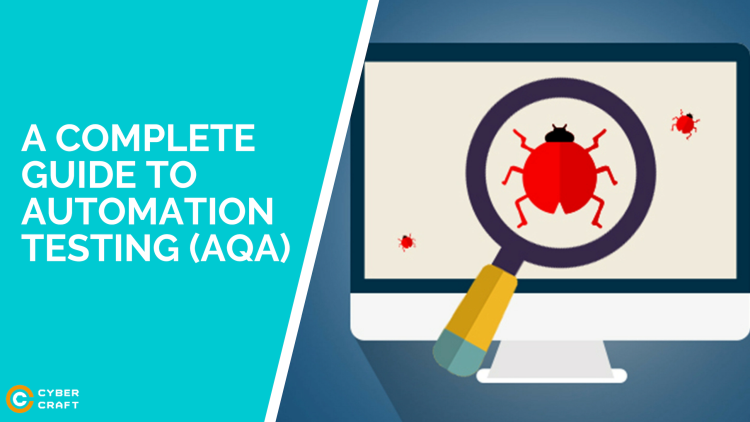What is penetration testing and why it is crucial to your business?
You might wonder: “What is penetration testing and why exactly it is important for my business?”. Well, depending on the type & size of your business, the answer may vary. However, the key point remains the same – pen testers can secure your IT environment from hackers and other threats. The following article is to answer the major questions you might have on this subject.

What is penetration testing?
Security penetration testing is a set of tactics directed to explore the vulnerabilities of a system or application. Using this approach, companies can find out how secure their IT infrastructure is and what are its weaknesses. The vulnerabilities can be found anywhere – in services, networks or operating systems. Thus, it is important to identify them before the hacker uses them.
Determining defensive mechanisms and how efficient they are is also a part of penetration testing. By providing themselves with detailed data on existing security threats, agencies can take proactive measures.
A pen test, also known as white hat attack, usually includes such stages:
1 – Reconnaissance
The main goal of an attacker on this stage is to collect the complete information about a target, whether it’s a network, system or application. He gathers this data by surfing the Internet (passive reconnaissance) or by contacting a target directly (active reconnaissance).
2 – Scanning
That’s when specialists use specific tools and instruments to gain the in-depth knowledge on target application. This stage is also known as the pre-attack stage. For example, one can use the vulnerability scanner or a network mapper to detect ant vulnerable areas, while diving deeper into the network.
3 – Gaining access
Pen testers take control of a network device to access a certain system by cracking passwords, social engineering or any other methods. This is the middle stage in penetration testing.
4 – Maintaining access
Once the attacker enters a system, he will try to retain control of it by creating one more account, using tools or the alternative ways. The task of a pen tester is to simulate these scenarios in order to prevent them from happening.
5 – Covering tracks
No cyber-attacker wants to be detected. That’s why he takes actions to remove any logs and clears the system. After passing through all of the stages, penetration testers analyse gathered data to update the existing security strategy.

Why do you need a penetration test?
– Three words: awareness, prevention, security.
In the age of constantly growing cyberattacks and data breaches, you should have a strong defense layer and control system. The most common types of attacks are Ransomware, phishing and DDoS attacks. Modern business owners simply can’t afford ignoring these potential threats, no matter in which industry they operate.
The main reasons why agencies decide to use penetration testing services are:
1 – find vulnerable areas in the existing IT environment
You can gain insight into the existing network and devices. Find out how your enterprise systems can be used by hackers and prevent this from happening. If your business manages important or sensitive data, protecting it against hackers should be among your core priorities.
2 – explore risk holes that are difficult to find in other ways
There are better ways to protect your data then using automated software for system scanning. Penetration testing can be done manually or automated with a specific software. Either way, it allows to identify the risk areas inside a solution and how the attacker could come from the outside.
3 – create an effective risk-preventive strategy & optimize existing security system
When a penetration test is completed, it is time to create recommendations on improving the existing security system in short-term and long-term. The report lists vulnerabilities in order of how easy it is to exploit them and how heavily they can impact your enterprise. With this type of information, you can create a plan of your remediation tactics and manage the resources properly. The key is to identify risks which are critical to your organisation and target them in your security strategy.
4 – avoid further expenses related to data breaches
Needless to say, data breaches cost companies a lot. According to IBM Security study, a data breach costs in average $3.86 million to companies, with a yearly increase 6.4%. The study takes into account various cost factors, ranging from tech recovery to losses in company reputation.
Taking into account this statistics, it’s better to prevent possible security issues then to cover them later. Now executives want to stay informed on the strength of their security layers and general security posture. That’s when security penetration testing comes in handy. For instance, the final report can offer valuable information about enterprise safety in simple terms. Both directors and tech personnel can benefit from this data.
5 – to keep your existing network secure
The common question is:”How often should I perform a penetration test?” Well, the answer might vary a lot.
To achieve the desired results and ensure your infrastructure is secure, you should use penetration testing services regularly.
Depending on the type of target application and of a test, the terms should vary from annual to monthly. This is to reveal recently emerged threats and risks, especially if some changes were made.
6 – to respond to international security standards
Last but not least, opting for a penetration test keeps an agency compliant with specific security standards. When adding new software solutions or making updates, choose this type of testing.
To achieve the best results, combine several tactics, such as pen testing, audits and code reviews. This allows to develop a cover-all security approach instead of relying solely on pen testing.

Hire a penetration testing company & get help of experts
To hire professional pen testers that will bring you expected outcome, you should know the main requirements for this position.
The basic skills include: strong technical skills & background, knowledge of the main security frameworks, experience with security tools & software.
Among the key soft skills for this type of experts are communication skills, since pen testers should create the in-depth reports that both technicians and non-technical people would understand.
Besides, it’s preferable that the candidate has passed one or many certification tests. This means that he/she gets the advanced concepts and, ideally, can use them in practice.
Most popular penetration testing certifications:
- CEH: Certified Ethical Hacker
- CEPT: Certified Expert Penetration Tester
- CPT: Certified Penetration Tester
- OSCP: Offensive Security Certified Professional
- GCFE: GIAC Certified Forensic Examiner.
- CREA: Certified Reverse Engineering Analyst.
However, if you’re a non-technical specialist and new to hiring, finding the right specialists might be a bit of a challenge for you. That’s where CyberCraft is ready to help: using our years in IT staffing experience, we will select pen testers to your specific requirements. Then, we will build your team and provide it with all the necessary equipment.
Have you ever wondered why so many companies build their development teams on a remote basis? The answer is simple. Getting access to tech talents all over the world, they get high-skilled specialists and save on their budget. Join our satisfied clients and secure your software solutions!



